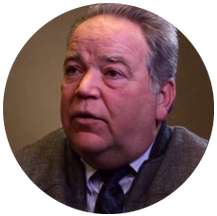We can only speculate that the 49ers, Ravens or even Lions will make it to the Super Bowl (it won’t be the Browns or Bengals unfortunately).
But there can be no doubt that 2023 marked the opening round in sports betting and how it impacts our community. And, while sports wagering generated a lot of attention (some examples here, here and here), something else deserves notice too.
But first, some background.
Every five years since casinos began legally operating in 2012, the Ohio Department of Mental Health and Addiction Services and Ohio for Responsible Gambling conduct a survey to assess how our state engages in gambling. In general, these polls collect data on ways adults gamble, how often they bet, and the shared characteristics that define problem gambling.
The first survey set a baseline, allowing us to measure changes by the time of the second survey in 2017. One key question centered on whether more people would become problem gamblers when gambling was more accessible and convenient (casinos opening across the state). Sure enough, those at-risk for a gambling disorder nearly doubled over those first five years.
Earlier this year, the 2022 results documented that the percentage of people who had slipped into pathological gambling increased from 0.9% to 2.8% (that’s 250,000+ individuals), with an additional 17% at low or moderate risk for problem gambling (more than 1.5 million people!). That means that the number of problem gamblers tripled in five years, and that’s BEFORE sports gambling became legal on Jan. 1 of 2023.
As a gambling addiction counselor at Maryhaven, one of 10 best-practice gambling treatment centers in Ohio, I can confirm that the state numbers are not an anomaly. Calls to Maryhaven for problem gambling help rose by more than 50% this year.
Sports were not the only reason for the uptick. In 2023, I saw more lottery players enticed by ever-increasing jackpots and more veterans who fell prey to any and all forms of gambling. Casino revenues escalated and sadly, so did suicide rates. The latter is not an incidental correlation. Gambling addiction results in the highest rates of suicide among all addictions.
There is a silver lining. We had always referenced gambling as the hidden addiction because it’s so much harder to identify compared to drugs or alcohol. But gambling is stepping out of the shadows and that’s a step forward in overcoming the stigma of this disorder.
The influx of sports betting in Ohio brought with it a barrage of competition and endless advertisements, yet it also fostered a greater understanding that services like ours exist—that help is available, with compassion and without judgment, to anyone worried about their gambling or the gambling of a loved one. The state conducted a public education effort called Beat the Stigma, to challenge what individuals know about addiction and mental health. All these contribute to creating a culture where people feel more comfortable asking for help – and that’s key to recovery.
So, while I helped more sports bettors in 2023, I also helped casino goers, day traders, and online gamers. Resources to help them also have expanded, from Time Out Ohio (the voluntary exclusion program) and Gamban (online site blocking) to virtual and in-person Gamblers Anonymous meetings and free financial counseling.
With tele-health and Maryhaven’s online appointment tools, it’s now easier and more convenient for gamblers and their families to get the intervention and resources they need. Let’s make 2024 the year that proximity to services and care attracted more people than those who fell into problem gambling.

